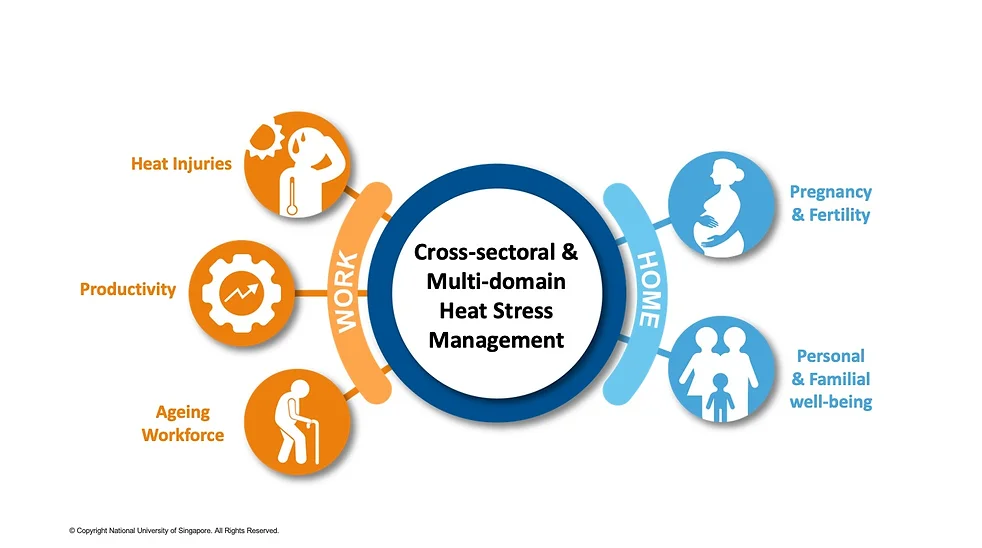Project Heatsafe
2020 was officially the hottest year on record — never in history has the human race faced such an urgent threat due to heat exposure. Project HeatSafe aims to understand how our warming climate affects our health and work productivity, especially in exertional populations, as well as identify sustainable preventive policies and actions that can reduce these impacts.
Singapore’s climate is getting warmer, with the average ambient temperature rising year-on-year. This has been the trend for many cities around the world – a phenomenon attributed to global warming and the urban heat island effect. The tropical climate means that people are chronically exposed to hot conditions. While we have psychologically adapted to our climate, its impact on our health and wellbeing has not diminished. People whose vocations are based outdoors are particularly vulnerable to environmental heat, which can be detrimental to health, well-being, and work productivity. If workers cannot or do not take rest in relation to heat stress, accidents, and serious health effects such as heat stroke death can occur.

Project HeatSafe seeks to understand the complex threat that heat-exposure poses to human health, well-being, and work productivity in Singapore and other tropical countries such as Vietnam and Cambodia; and to identify sustainable preventive policies and actions that can reduce these impacts.
Methodologically, this project combines disciplinary approaches that are utilised discretely and in multi-disciplinary ways to generate rich data and analyse the complex ways in which heat impacts health and performance. This involves the spatial, temporal, and other interactions of physical and social systems, including local environmental conditions, climate, thermal physiology, health and perceived health impacts, economic impacts analysis, and social practices.
